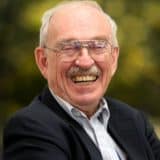
The distribution of income and wealth is more unequal today than at any time since 1928—just before the Great Depression.
The richest 1% of Americans own more wealth than the bottom 90%. The bottom 50% of families have a median annual income of $24,900, while the richest 1% of families have a median annual income of $1 million.
The richest 1% of Americans own more wealth than the bottom 90%.
And the gap between the richest 1% and most of the rest of us keeps widening. From 1993 to 2007, more than 50% of all the growth in national income in the US went to the richest 1%. In the last few years, over 90% of all growth in US national income has gone to the richest 1%.
From 1979 to 2013, the annual pay of middle-income workers (the 50th percentile) was stagnant. Low-wage workers saw their pay decline by 5%. But the annual pay of the top 1% rose by 138%.
In 1956, CEOs made 20 times what the typical worker made. By 2013, CEOs made 300 times what the typical worker made.
One reason for the ever-widening inequality is the tax code. Taxes have been cut several times under Presidents George W. Bush and Donald Trump. And 65% of all the tax cuts went to the richest 20%, and 22% went to just the richest 1%!
Another reason for the widening inequality is that the federal minimum wage (now $7.25 an hour), is, when adjusted for inflation, worth 27% less than 50 years ago.
Because of sin, power corrupts, and absolute power corrupts absolutely. That is why this huge gap between the richest Americans and the rest of us is dangerous. The very rich use their wealth to buy elections and prevent the government from passing tax legislation that would demand that they pay their fair share.
Because of sin, power corrupts and absolute power corrupts absolutely. That is why this huge gap between the richest Americans and the rest of us is dangerous.
But voters can change that! Economic justice is one of the central issues as we look toward the 2020 national elections. We must elect political leaders that will increase the taxes of richer Americans—especially the top 20% and very especially the top 1%. That would enable us to rebuild our infrastructure, expand effective programs that empower poorer Americans, and help lower-income students afford college.
Simple justice demands this. So does the future of our democracy.
 Ron Sider is the Founder and President Emeritus of Christians for Social Action. This article first appeared on his blog, and is reprinted here with permission. Subscribe to his free blog here!
Ron Sider is the Founder and President Emeritus of Christians for Social Action. This article first appeared on his blog, and is reprinted here with permission. Subscribe to his free blog here!


